Best Amazon Fire TV Stick: how to know which streaming stick you should buy
HD, 4K, Max or Cube? We'll help you decide.
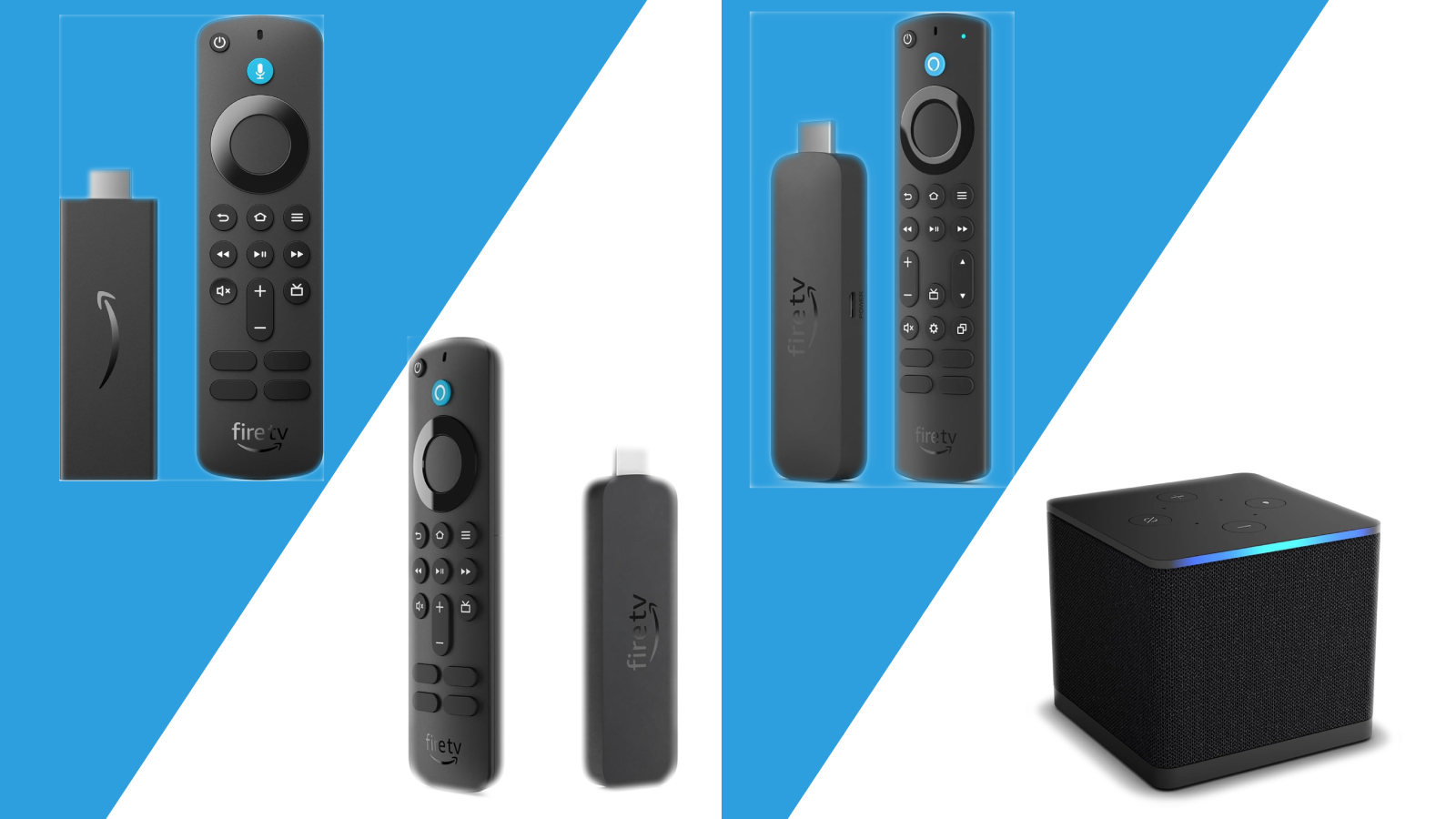
What's the quickest way to complete transform your smart TV? An Amazon Fire TV Stick. This handy little dongle can be plugged in and allows access to some of the best streaming services alongside extra functions, an increasingly popular way to consume TV.
If you choose to go down the Amazon Fire TV Stick path, you have various options: Amazon Fire TV Stick HD, Amazon Fire TV Stick 4K, Amazon Fire TV Stick 4K Max, Amazon Fire TV Cube. Each of these individual options differ in price, features and other aspects as we've very helpfully detailed in this guide to buying the right Fire TV Stick for you.
And what will you do with those hours of research you would have spent researching Fire TV Sticks? Streaming the latest TV shows instead. Each part of this handy guide will clearly detail some factors that will help you reach a judgement as to which option is best for you. Video quality, Wi-Fi standard, capacity needed and speed: these are all factors that vary in each of the four sticks so make sure you read below for more information.
We've broken it down to an overview, differences between models and an in depth section about each of the devices. So, read on to know which streaming stick you should buy.
Amazon Fire TV Stick differences: quick overview
| Device | Video output | Audio output | Storage space | Memory | Remote | Extra features |
| Amazon Fire TV Stick HD | 1080p | Dolby encoded audio | 8GB | 1GB | Alexa Voice Remote | - |
| Amazon Fire TV Stick 4K | 4K | Dolby Atmos Audio | 8GB | 2GB | Alexa Voice Remote | Dolby Vision, Picture-in-picture |
| Amazon Fire TV Stick 4K Max | 4K | Dolby Atmos Audio | 16GB | 2GB | Alexa Voice Remote Enhanced | Dolby Vision, Picture-in-picture, Ambient Experience |
| Amazon Fire TV Cube | 4K | Dolby Atmos Audio | 16GB | 2GB | Alexa Voice Remote Enhanced | Dolby Vision, Picture-in-picture, device control |
Amazon Fire TV Stick differences: in depth
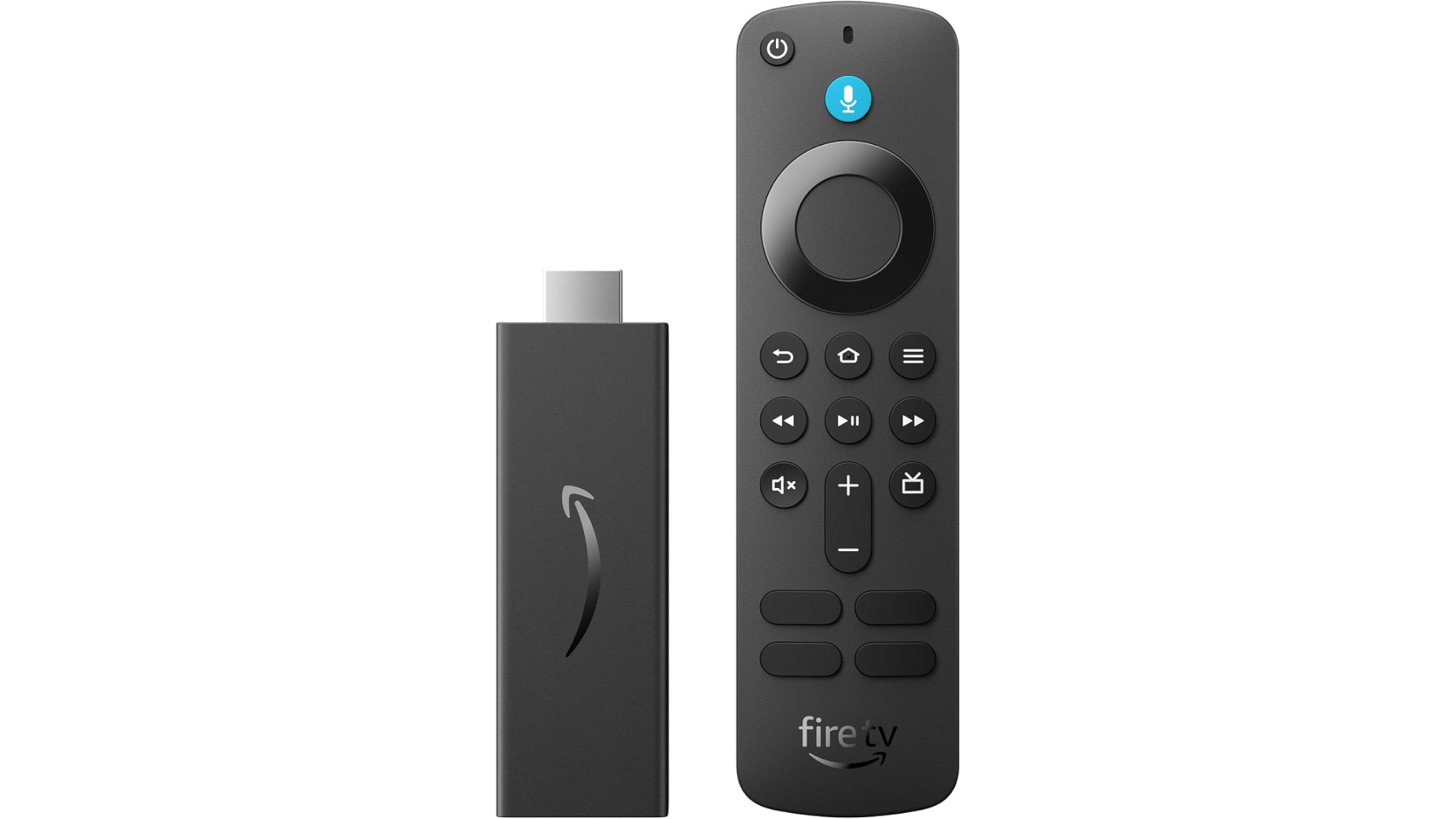
Amazon Fire TV Stick HD
Specifications
Reasons to buy
Reasons to avoid
The cheapest Amazon streaming stick is the Amazon Fire TV Stick HD, which the company released to replace the standard and Lite models. This low price makes it perfect for people who don't care about feature set, and just need any streaming dongle.
As the name suggests, the Fire TV Stick HD only supports video streaming at up to HD or 1080p, making it the only one of the company's sticks that don't offer 4K.
It offers 1GB memory, less than its siblings, so it'll be a little slower to use. It also only supports Wi-Fi 5, instead of the higher standards you'll see lower on the list, so its internet connection will be a little slower too.
The latest updates, reviews and unmissable series to watch and more!
If you don't have a 4K TV, then the Fire TV Stick HD would seem like an obvious choice, especially since it offers lots of features in common with its siblings like the same software, Dolby Atmos audio and the Alexa Voice Remote.
It's worth checking some of the options lower on the list, because of the unique features they offer, but if spec lists and feature sets may as well be in a foreign language to you, the Fire TV Stick HD is the easy-to-use option you need.
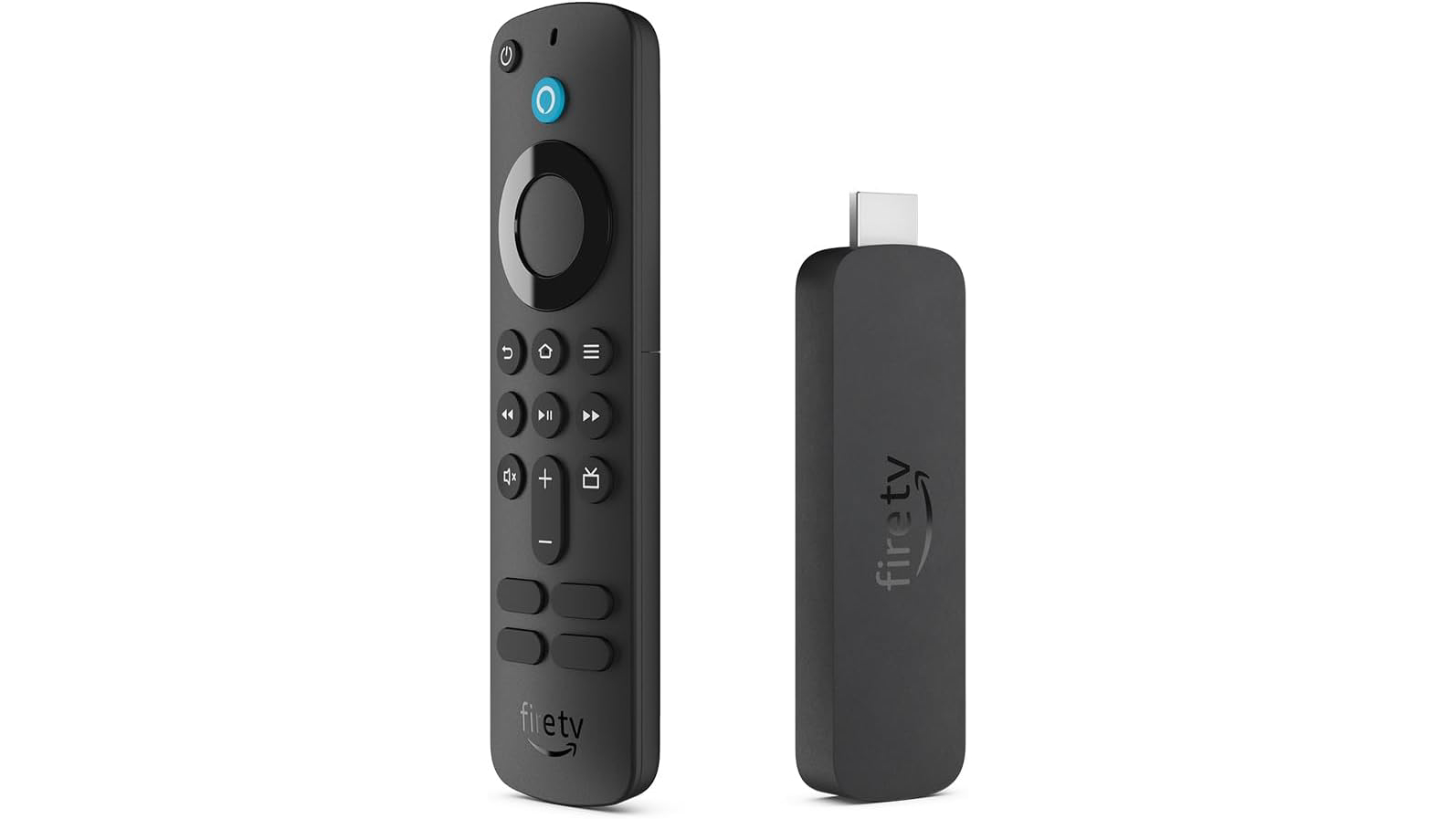
Specifications
Reasons to buy
Reasons to avoid
If you own a 4K TV, projector or screen, then the Amazon streaming stick you should be considering is the Amazon Fire TV Stick 4K. As the name suggests, this is the first of the dongles that supports streaming 4K videos.
A higher number of pixels in your videos isn't the only benefit that the Fire TV Stick 4K, as it's also the cheapest of Amazon's dongles to support Dolby Vision streaming. It also has more memory than the HD stick, so it'll be faster to use.
This is Amazon's 'default' stick now, having by far the most reviews on its website than its siblings, so it may be the first dongle that you'd consider.
The Fire TV Stick 4K isn't Amazon's cheapest streaming stick, so it's not worth buying if you can't appreciate its benefits (read: if you don't have a 4K TV). But if you do, and don't care about extra features or space, this is the stick to buy.
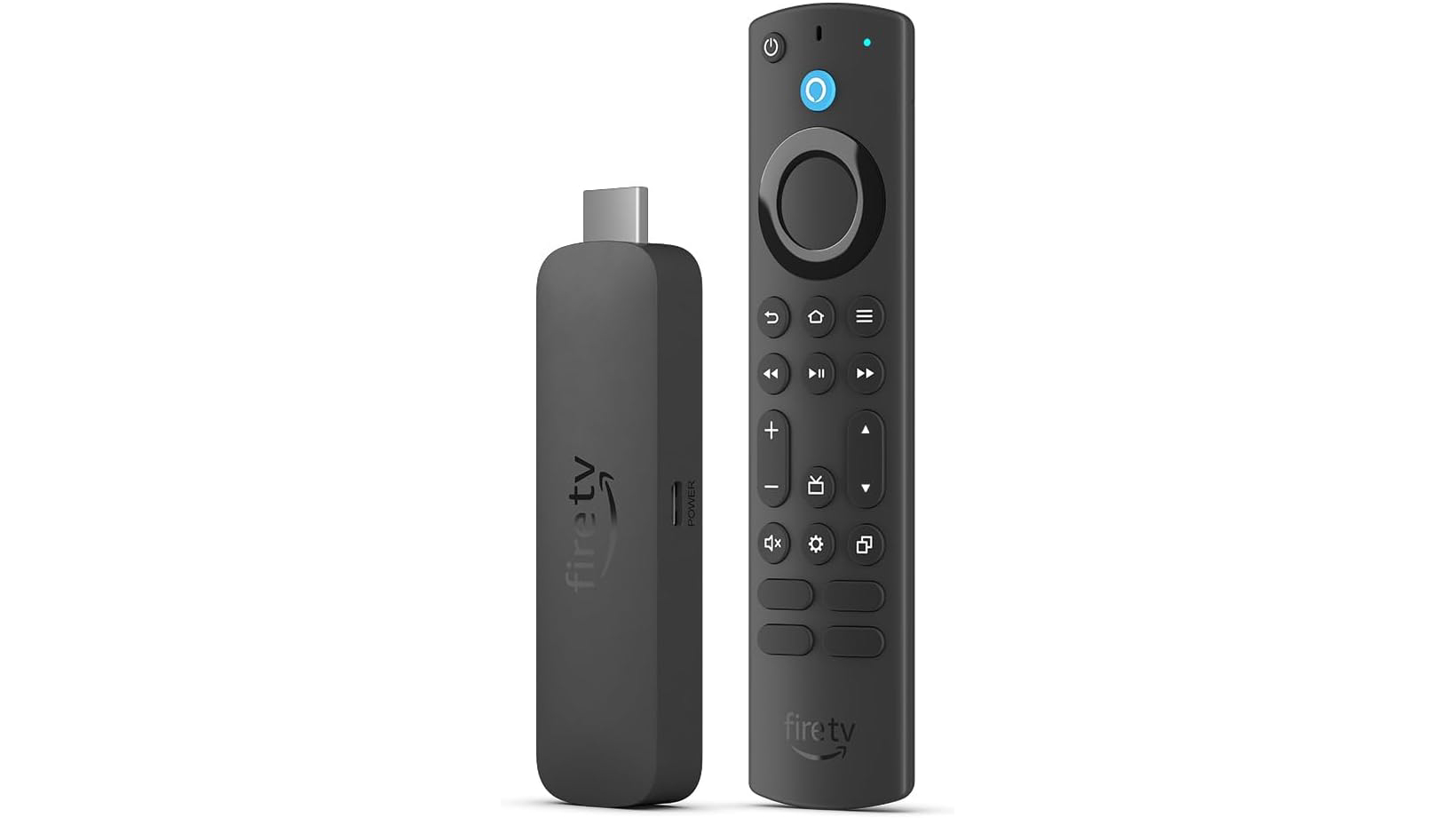
Amazon Fire TV Stick 4K Max
Our expert review:
Specifications
Reasons to buy
Reasons to avoid
Max and 4K? Amazon has doubled the adjectives for this streaming stick, which brings a few upgrades over the 'standard' 4K streaming stick.
The unique selling point feature of the Fire TV Stick 4K Max is called Fire TV Ambient Experience, and it turns your TV into a smart display when you're not watching TV. So if you want to use your TV as an Echo Show, it's a good device.
Beyond that, you're also getting twice the storage of the 4K dongle, at 16GB, and a bigger remote with more options which is called the Alexa Voice Remote Enhanced.
On the flip side it costs more than the Fire TV Stick 4K, and while the price hike isn't huge, it's only one you'll want to consider if Ambient Experience or an extra 8GB storage are important to you.
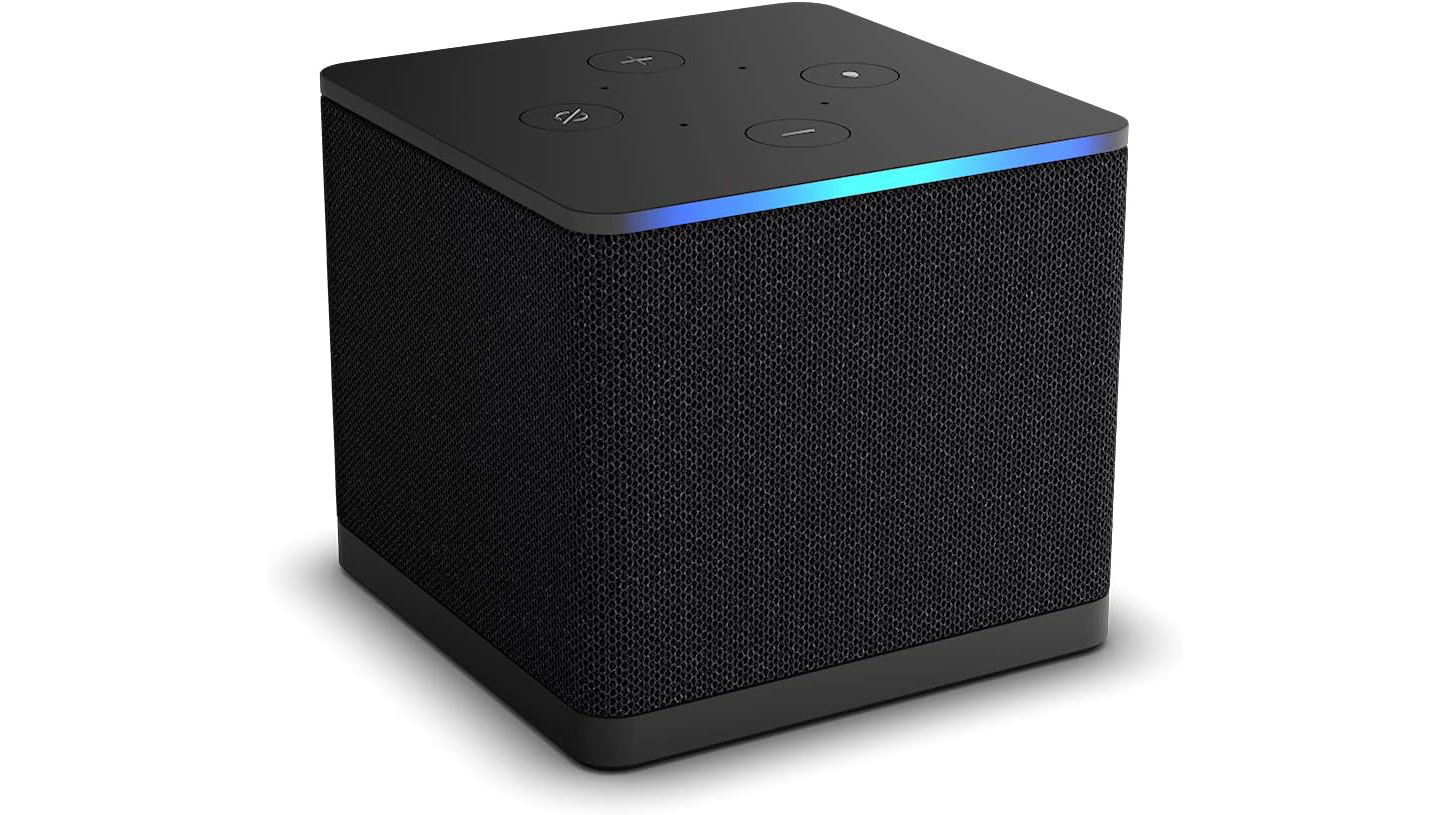
Specifications
Reasons to buy
Reasons to avoid
The most expensive streaming device from Amazon — and therefore the one you might be shying away from — is the Fire TV Cube.
As that name suggests, this device looks a bit different from the others, and that represents its different task. This isn't simply a streaming stick, but a home hub gadget for control over multiple devices, that just so happens to let you stream movies too.
Specs-wise, the Fire TV Cube works the same as the Fire TV Stick 4K Max, save for that dongle's one selling point of Ambient Experience.
What's different, and what makes the Cube cost a lot more than its siblings, is that the device works for hands-free Alexa to build into an Echo or Alexa home ecosystem. You don't just ask it to turn on a streaming service but change your lighting, set an alarm, play music and more (it all depends on which other Alexa-enabled devices you have). It has two HDMI ports as well as an ethernet port and Bluetooth connectivity, so you can connect it to different devices.
Per that feature set, the Fire TV Cube is unnecessary if you don't own other devices which are compatible, and its size makes it unwieldy for certain home theater set-ups.
Instead it's best for people with a full smart-home set-up who want their TV to work on it, or even be the center of it.
How to know which Fire TV Stick to buy
What is storage and memory?
Some of the terms I've used will be obvious to you, but some might not. So what are storage and memory, both measured in GB?
Put simply, storage is how much space you have on the stick to download things like apps or movies. More storage equals more space before you have to start deleting things.
Memory is the speed at which the stick navigates or works. Nowadays almost all of the company's sticks will be at 2GB, with only the TV Stick HD at 1GB. That drop isn't going to be horrible, but the Fire TV Stick HD will load apps and videos slower.
What do Wi-Fi standards mean?
Engineers are always creating new types of Wi-Fi standard, with this list mentioning 5, 6 and 6E.
The two main benefits with newer standards of Wi-Fi are improved speeds, and increased reliability, so you won't keep losing connection. Your internet router or provider will tell you which kind of network your home gets, but usually you have to pay more for fancy routers with 6 or 6E.
What about cloud gaming?
Some people like to use their Amazon Fire TV Sticks for cloud gaming, and if that's a consideration for you, there's one key thing to bear in mind.
Every single Amazon Fire TV Stick lets you access the company's own Amazon Luna, to stream games that way. And all but one let you stream games via Xbox Game Pass too, with the sole outlier being the Fire TV Stick HD which doesn't.
- SEE ALSO: Amazon Fire TV Soundbar review

Tom is the streaming and ecommerce editor at What to Watch, covering streaming services in the US and UK.
As the site's streaming expert he covers new additions, hidden gems, round-ups and big news for the biggest VOD platforms like Netflix, Apple TV Plus, Disney Plus, Prime Video and Tubi. He also handles the site's articles on how to watch various movies, TV shows, sports, live events and classic box sets, and coverage on hardware like TVs, soundbars and streaming sticks.
You can commonly find him at film festivals, seeing classic movies shown on the big screen, or going to Q&As from his favorite film-makers and stars.

